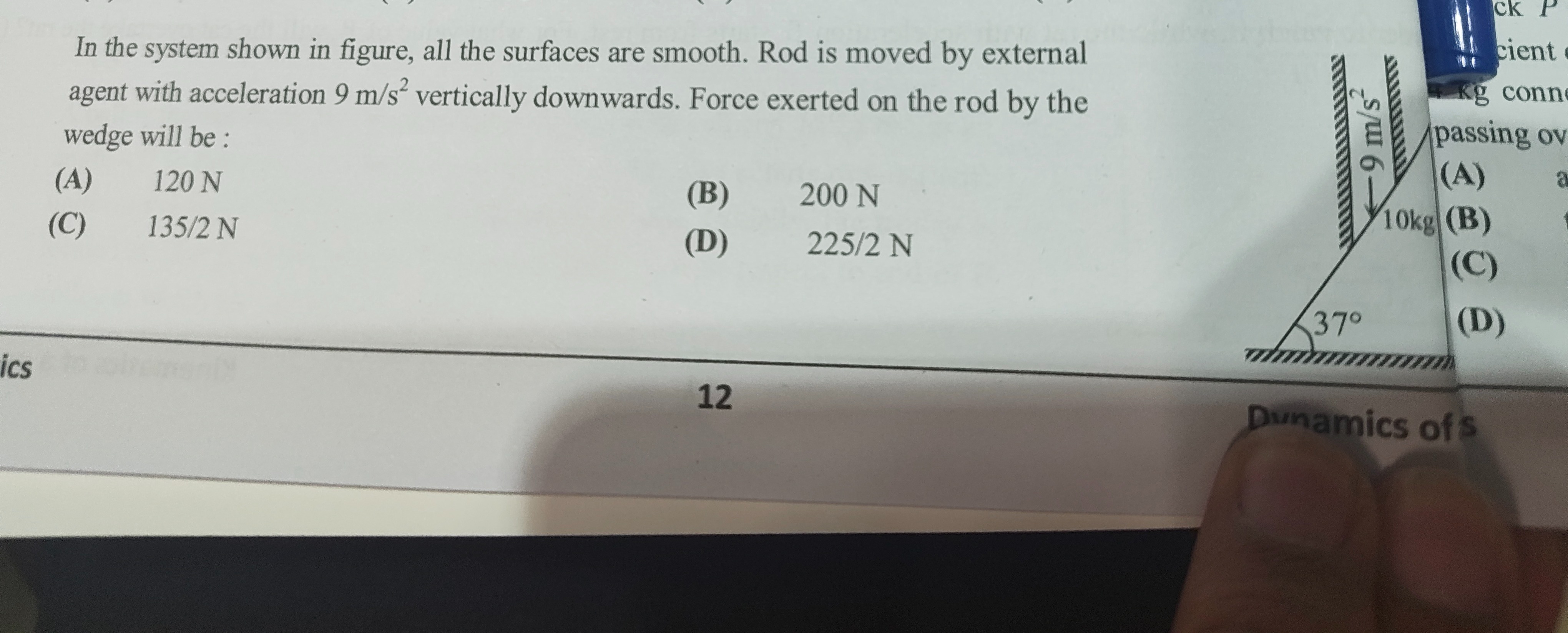Question
Question: In the system shown in figure, all the surfaces are smooth. Rod is moved by external agent with acce...
In the system shown in figure, all the surfaces are smooth. Rod is moved by external agent with acceleration 9 m/s² vertically downwards. Force exerted on the rod by the wedge will be:

120 N
200 N
135/2 N
225/2 N
200 N
Solution
Solution
- Setup and Geometry
The rod is accelerated vertically downward with acceleration ar=(0,−9) m/s². The contact is on the wedge’s smooth inclined face which makes an angle 37∘ with the horizontal. Choosing the unit normal to the inclined face as
n^=(−sin37∘,cos37∘),(pointing from the wedge toward the rod), the contact condition (no separation along the normal) requires that the relative acceleration along n^ must vanish.
- Relative Acceleration Condition
Let the wedge accelerate horizontally with unknown aw=(a,0). Then the relative acceleration is:
arel=ar−aw=(−a,−9).The no‐separation condition along n^ gives:
arel⋅n^=0⟹(−a,−9)⋅(−sin37∘,cos37∘)=0.This yields:
asin37∘−9cos37∘=0⟹a=sin37∘9cos37∘=9cot37∘.Numerically, using sin37∘≈0.6018 and cos37∘≈0.7986,
a≈9×0.60180.7986≈9×1.327≈11.94 m/s2.- Wedge Dynamics
The only horizontal force acting on the 10 kg wedge is due to the reaction force N from the rod. By Newton’s third law, the wedge experiences a force:
Fw=−Nn^.Only the horizontal component matters. Since
Nn^=N(−sin37∘,cos37∘),the horizontal component is Nsin37∘ (directed to the right). Applying Newton’s second law for the wedge in the horizontal direction:
10a=Nsin37∘.So,
N=sin37∘10a=0.601810×11.94≈0.6018119.4≈198.3 N.Rounding, the force N is approximately 200 N.
